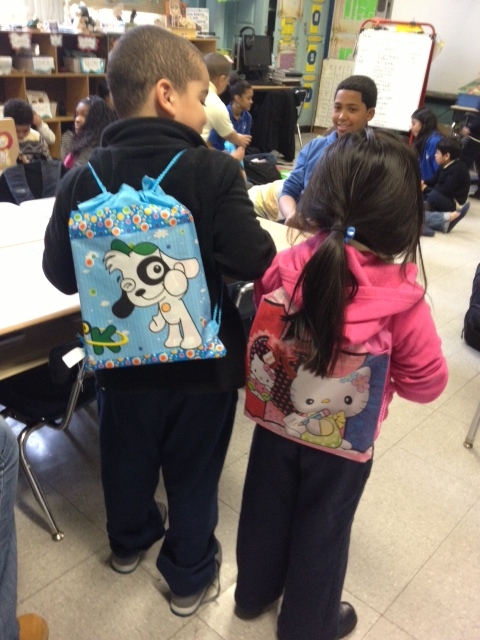
Yours Humanly Gets Kids Off the Street and Into the Classroom
Yours Humanly helps children on the most basic level: by making sure they’re not on the streets. And yes, that happens more than you might know. Which is why Kars4Kids wanted to help.
Sunny Singh, the CEO of Yours Humanly, believes in getting kids off the streets and into classrooms. We were pleased he consented to an interview to tell us more about the work of this unusual nonprofit that is helping kids both at home in the U.S., and abroad, in third world countries.
Kars4Kids: Tell us about your childhood in India. What did you see that made you want to change the world?
Sunny Singh: Growing up I observed poverty from a very young age in India. Of course, what bothered me the most were the little children, that were my age at the time. To see them sleeping on the sidewalks in freezing temperatures; to see them begging on the streets, malnourished with few clothes on their bodies. It made me wonder how we’re, how they’re any less of a child than I was or less of a human than I was.
At a very young age I found out I was adopted. That changed a lot of things for me. Because if I hadn’t been adopted, then my life would have been a lot different. Yours Humanly is a way of paying that opportunity forward.
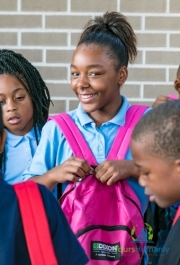
Kars4Kids: When did you found Yours Humanly?
Sunny Singh: In 2013.
Kars4Kids: How many kids has Yours Humanly helped?
Sunny Singh: So far 4,300 children.
Kars4Kids: Are there enough schools for children in the United States?
Sunny Singh: No. And the reason I say that is that there are many cities and states that I know of where there are not enough high schools and middle schools and the ones I do know of are overcrowded with too many children in the classrooms. Sadly enough, many of the schools that are there are not up to par with what they should be in today’s time.
Kars4Kids: What can the public do to improve education in underserved communities?
Sunny Singh: Volunteer their time, because the children in underserved communities, as much as they need education, even more they need people to talk to them because a lot of these kids don’t have that. They don’t have people to talk to them at home, spend time with them. What they need is people to give them of their time. Then of course, they need people to contribute to them monetarily so these kids can have books, school supplies, clothes, uniforms.
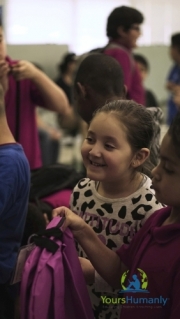
Kars4Kids: Can you tell us a story of a child who is a Yours Humanly success story?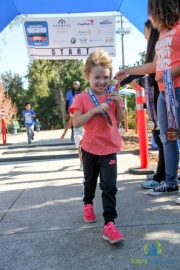
Sunny Singh: We’re pretty young as an organization, so let’s say they started with us in kindergarten, so they’re now in 4th grade. Our success stories are seven years away, but in about that time, we’ll be seeing a lot of these children graduating high school, and then we’ll have lots of these stories to tell, as we follow these children all the way through school.
But that said, these are children who would have been on the streets. The fact that these children are in classrooms is already a success.
In some of the foreign countries where we operate, for instance in Cambodia and Nepal, these children didn’t know a word of English or anything about computers a year ago or two. Now they can type, and speak a sentence or two of English. These are kids that are 5-8 years old.
The success story for them is that instead of being on the streets, they’re in classrooms. They have a better chance at the future in classrooms than they did on the streets.
Kars4Kids: The Yours Humanly website states that you provide K-12 scholarships and place hundreds of underprivileged children in their local schools. Can you tell us some of the countries you serve where public education, free of charge, is not available to children?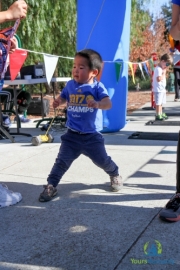
Sunny Singh: In most countries it is available but the quality of education is such that kids go to school but there is no education, there is no learning in those schools for various reasons. The teachers are not qualified enough. They don’t show up for work, because this is not their only job. They ask the kids for money, and if they don’t have money, they don’t teach.
In Cambodia, kids are asked to put in a quarter a day. These are kids who don’t have money to eat. Education is there, it is free, but you could go to school every day and not learn anything.
This is the same story in the United States. People are sending their kids to private schools. Not everyone. Those who can afford them. The public school system isn’t always working.
Outside the U.S. there are not enough qualified teachers. There’s no infrastructure. That’s true of a lot of schools in the U.S. as well. A lot of schools are failing. A lot of the private schools, charter schools are taking over. Funding is being cut off from education. If the schools and school districts did what they were supposed to be doing there wouldn’t be a need for a nonprofit to step in.
Kars4Kids: What about within the U.S.? Are you helping children attend private schools in some cases? Are there cases where you would see the public school system as insufficient for a student’s needs?
Sunny Singh: So far we’re not helping with private schools here because that is much needed outside the U.S. more. There’s a huge difference between public schools here compared to say Cambodia, so right now with the focus of our K-12 work is assisting kids within the system to improve the quality of learning there.
Foster care households are receiving backpacks and educational materials which many of them cannot afford. Our partnership is with the schools and with the children to provide them with the necessary tools and with preschools and subsidized households where the parents are not paying. There are many centers we partner with in the San Francisco Bay Area, serving about 4000 children from subsidized households.
Kars4Kids: What happens to the students you help through school once 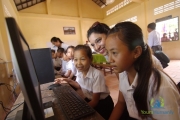 they graduate 12th grade?
they graduate 12th grade?
Sunny Singh: First of all, our thinking is if you get them to at least past 12th grade, you’ve gotten them to a point where they can get a small job. They’re not like people on the streets. They have English, they can type. They can work for a call service like Apple or Amazon. We’ve got them to a point where they can read English, type, and get a job.
Hopefully, within the next 7 years we will be at a point where we can put them through college, as well.
A second point: we’re also in contact with organizations that put kids from underserved communities through college and we’re hoping we can make that happen through these contacts, so we can continue to help these kids grow and not just leave them at 12th grade.
Kars4Kids: What’s next for Yours Humanly?
Sunny Singh: We’re looking forward to March and our annual fundraising dinner. The first 2-3 years we had more of an international focus and the last two years we’ve been doing more work locally. we’re looking to do more work here in the U.S. itself. The best way to make sense of this: when we first started out, the amount of money we raised in the first year was very limited compared to later years, so we did more internationally. There you can do a lot with a little bit of money. Now we have bigger donors, so we can do a lot more here with that amount, with the money we raise.